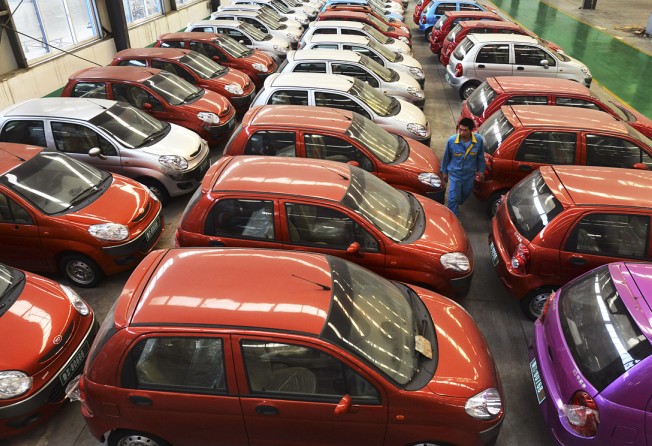China plans more perks to drive up demand for electric cars
Tax breaks and more charging stations among those promised by central government

China will roll out more benefits, including tax breaks, to promote the use of electric vehicles – especially among private consumers – as it seeks to cut down on pollution.
Minister of Sciences and Technology Wan Gang announced preferential policies that could be expected, just a day after the State Council said the government would exempt purchase tax for new-energy vehicles.
These include all electric cars, plug-in hybrids and fuel-cell vehicles.
China wants to boost the sales of electric vehicles and has set a target of having 500,000 on the road by next year.
But the nation only has about 70,000 new-energy cars in operation – and more than half of these cars are public buses and taxis.
More measures should be taken to encourage private users to buy electric vehicles, Wan said.
”The State Council is putting electric vehicles high on its agenda because electric vehicle does not only save energy, but also avoids pollution,” Wan said in a press briefing on the sidelines of the Sino-US Strategic and Economic Dialogue this week.
”I believe very soon there will be more supportive policies for electric vehicles in the future,” he said.
More charging stations will be built in new residential compounds, Wan said.
Officials from China and the United States are engaging in intensive discussions on a wide range of issues over the two-day dialogue that kicked off on Wednesday, setting the tone for bilateral ties that are overshadowed by rising mutual mistrust.
Wan said he has discussed co-operations on high technology, clean energy and protection of intellectual property rights with US officials. The sciences minister also talked about how companies could keep their information confidential – a sore point between the nations amid recent cases of US firms allegedly being targeted by Chinese hackers and informants.
But Wang added that his talks with US officials did not cover cyber security, which has also caused friction after the US indicted five Chinese military officers for hacking into US companies for trade secrets.
Among its targets, the central government said the country aimed to cut coal use by 22 million tonnes this year to cut energy intensity – a measure of the economy’s energy efficiency – by 3.9 per cent.
It has also pushed local governments in key cities to cut down smog, whose culprits have been identified in studies as heavy industries and car emissions and traffic dust, among others.